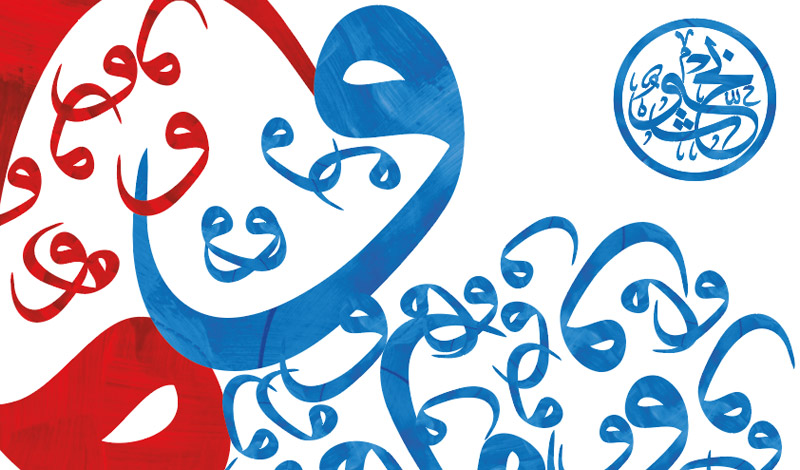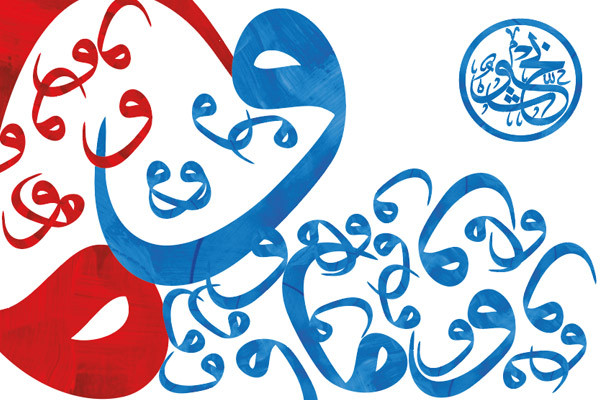Arab Youth - Just who is responsible?
For generations, adults across the world - in every nation, and of every political and religious persuasion - have wrung their hands in despair over `the youth of today`. Parents and governments alike worry about young people`s potential, value and purpose - and how to best communicate with them. In the current climate of global terrorism, conflict, violent extremism, population explosion, political instability and a stuttering global economy, the young people of the world are increasingly being perceived as presenting both a threat and opportunity for their nation.

- by Elizabeth McKinney-Bennett ,
- Wednesday, 21st September, 2016
But just who is responsible for developing the 'youth of today' into becoming valued and valuable citizens of the future? The rulers or leaders of countries? Individual government ministries? Parents? Teachers? The international community? Religious leaders? The answer of course, lies in all, but the real question is how to create a unifying purpose and a unity of effort of all those involved: including, of course, young people themselves.
It is evident from the plethora of studies, surveys and initiatives that many across the world see the youth of the Arab world - with its highest proportion of young people - as being key to the world's future. This conglomeration of many nations, religions and cultures into a single amorphous entity of 'The Arab World' may offend some, but it does provide a useful example of how the initiatives and practices employed by some elements can provide an excellent exemplar of how all can ultimately benefit.
A recent survey, the 8th Annual ASDA’A Burson-Marstellar ‘Arab Youth Survey 2016’ was conducted by the international polling firm ‘Penn Schoen Berland’ to explore the attitudes among the Arab youth of 16 countries in the Middle East. This was gleaned from personal interviews with 3,500 young people (with equal male and female participants, but predominately conducted in urban areas) across the region. It shows that the majority of young people look for more freedom, job security and peace in their lives and report that the biggest obstacles facing young people in the region are unemployment, lack of democracy, rising living costs and civil unrest.
Whilst some in the west believe that religion plays a pivotal, if not principal role in the region's stability and ability to progress, within the region, religious extremism is not considered as important - nor as worrying - to young Arabs as other, more prosaic issues. And whilst a survey (also by Penn Schoen Berland in response to the Arab Youth Survey) reported that 85% of Americans reveal themselves to be 'concerned' (with 52% of those 'very concerned') over ISIS, and believe at least half of Arab youth support ISIS, the Arab Youth Survey found that 78% of the Arab young people polled ruled out ever supporting ISIS (up from 60% in the previous year's poll), even if they renounced violence and 76% do not believe that ISIS will ever establish an Islamic state in the Middle East region. That said, in the Survey, 52% of all respondents said that they believed religion played too big a role in the Middle East generally, though it is unclear if this is in respect to government or to any perceived restrictions placed on their personal freedoms by religion. Notably, that opinion was held by 61% of GCC interviewees compared to only 44% of those in the Levant and Jordan. However, it is universally understood that energy will take the path of least resistance: meaning that disempowered and disengaged youth who feel hopelessness at being unemployed (no job = no house = no marriage) and apathy at not being listened to, become dangerously vulnerable to the seduction of credibility, belonging, value and identity apparently being offered by extremist groups. This also creates the kind of 'Hope Gap' identified by HRH Queen Rania of Jordan. She suggests that these feelings of hopelessness, lack of purpose and apathy from unemployment and disenfranchisement can potentially be manifested in anger, dissatisfaction, political agitation and possibly even revolution.
It is also evident that many governments across the Arab world face a dilemma in setting their national priorities: what should be the focus? Security, so that children and young people (and particularly women and girls) can safely access schools and colleges? Or education, in the hope that violence can be 'educated out' of the disenfranchised, the criminals, drug dealers, gangs and, of course, religious extremists. When some governments complain of having a 'youth problem', it seems rather more the case that they have a 'national problem'; an ageing, hierarchical system, seemingly predisposed to maintaining the status quo, and perceiving youth as a hindrance, an irritation, rather than genuinely seeking new perspectives on addressing their nation's future; after all, in less than 20 years' time, today's annoying teenagers will be the adults, leaders and benefactors of the future - they must therefore be optimally prepared.
A notable element of the Survey was the number of respondents who identified the UAE as regional leaders in ambition: in respect of which country young people most wanted to live in, the UAE came top, as it did in the list of countries which they believed their own government should emulate. The UAE was second overall - narrowly behind Saudi Arabia - of which nation was the top ally in the Middle East. The UAE also came top in the countries whose young people believe they have good career opportunities in their own country, with 68% believing this to be the case.
So, how has the UAE apparently got it so right, while other governments in the region struggle to even understand why - let alone how - they should engage with young people?
Youth engagement strategies
In a recent event hosted by the Atlantic Council the esteemed panel included the world's youngest government minister, Her Excellency Shamma Al Mazrui, the UAE Minister of State for Youth Affairs. She spoke eloquently of the determination of the UAE's leaders and government to reach out, listen and heed the needs, fears, desires and difficulties of Emirati youth. She expressed the leadership's intent to encourage and empower youth to be the architects and authors of their own futures, as they consider the young people of the UAE to be absolutely key to the country's future prosperity. She was careful to emphasis, however, that this would only be possible through a genuine and effective partnership between youth, government, education, and, vitally, private and public business.
With youth unemployment in the UAE at only 10%, compared with a regional average of 40% , it seems that the UAE is already ahead, though it could be argued that it has wisely used the money it has received from oil and gas with which to 'buy' high standards of primary, secondary and tertiary education. However, it is clear that the government is not prepared to 'rest on its laurels' and, along with initiatives such as its 'Emiratisation' programme to increase Emirati youth employment in public and private entities (though take up for the latter is slow, as it is perceived by some to be more risky, less lucrative and harder work than state posts) and its efforts to diversify its economy, it appears that the UAE is determined to be, as His Highness Sheikh Mohammed bin Zayed put it, ready "..to celebrate when the last barrel of oil is produced."
In furtherance of its goals to engage young people more effectively, the government of the UAE appointed the world's first minister of state for youth in its efforts to find the best channels through which to communicate with its youth.
It realized that most young people simply have a relentless quest for purpose, acknowledging that being unemployed leads to a disengaged and disempowered youth. However, the responsibility for the success of Emirati youth does not fall solely at the feet of HE Shamma Al Mazrui: within government, education obviously plays a crucial part in developing a highly educated and technically proficient future workforce. Yet employers in business, commerce and the private sector complain that the new recruits do not have the correct or sufficient 'life skills': work ethic, inter-personal skills, critical thinking, teamwork etc. This is not an uncommon complaint globally; Egypt, for example, has found that it has more university graduates who are unemployed than high school graduates. This demonstrates the urgent need globally - and certainly in the Middle East - to address outdated pedagogies, such as rote learning, and encourage self-directed learning and critical thinking. The concept that such skills can and should be taught is catching on around the globe, with the World Bank collaborating with governments around the world on its 'Solutions For Youth Employment' strategy to develop these life skills and even formulate an internationally-recognized test or standard against which to measure achievement - though this may seem counter-intuitive to some. William Reece, the President and CEO of the International Youth Foundation, highlighted and advocated the tangible benefits such as teamwork, cooperation, conflict resolution etc gleaned by young people being active participants in sport, youth groups, social and cultural organisations and suchlike during his participation in the Atlantic Council event. What is acknowledged as a vital element in these endeavors to develop 'life skills' is the participation of private and public businesses, to explain exactly what skills the current - and, perhaps more importantly, the future - workforce requires, if business, state and individual are to succeed and fully exploit their young workers' potential.
In the UAE, Ms. Al Mazrui has established 'Youth Circles' which allow and encourage feedback and the interchange of ideas directly with government ministers. An early success story from these 'Youth Circles' - held regularly in all Emirates - has been the establishment of entrepreneur 'incubators' in Ajman, mirroring those already working to great effect in Dubai and Abu Dhabi; virtual and real-life environments where ideas, support, mentoring and funding can more easily be accessed from public and private business, government and society across the UAE.
Empowering Young Women
Encouraging and enabling more young women and girls within the Arab world into education and thus into meaningful employment continues to be challenging in many countries. The World Bank's 'Adolescent Girls' Initiative' sought to challenge cultural and social barriers to empower women in Liberia, Jordan, Pakistan and Nepal, but encountered unexpected problems; youth unemployment was so dire in some countries that there simply weren't sufficient jobs for this new cohort of workers to undertake.
In stark contrast, the UAE is leading the region - if not the world - in empowering women. Over two-thirds of government employees are female; one-third of the UAE Federal Government Cabinet are female, and the UAE Parliament Speaker is female - statistics way in excess of many Western governments and societies. There is a genuine effort made to ensure equality of opportunity for all Emiratis across education, academia and in every aspect of employment.
The UAE also promotes its efforts to engage with all elements of society and youth; it has appointed a Minister for Happiness and a Minister for Tolerance, in addition to a Minister for Youth. This ensures that all government policy is cohesive, inclusive and suits the culture and attitude of the UAE, which increases its likelihood of such policy being accepted and advocated by its citizens. It also ensures that 'good news stories' are regularly seen and heard by society, thus diminishing negative and damaging stories. This is not achieved through any sinister 'Big Brother' intent, nor by state manipulation of the media, but simply by telling people about the positive achievements of their government, fellow citizens and particularly by the younger members of their society, who gain confidence and receive the recognition and respect of their peers and elders.
As a result of all these initiatives and endeavors, Emirati youngsters feel heeded, needed and purposeful. They are becoming equipped - not only with high quality education, but increasingly also with life skills and entrepreneurism - thus obviating the worrisome potential for disengaged youth to fail themselves and their country. Many other countries - in the West as well as in the Arab world - should take note of what a small, but evidently influential, country has achieved, principally by taking responsibility for its youth.

Elizabeth McKinney-Bennett
Read More
Areas of Expertise
- Strategic Communications specialist
- Full-spectrum strategic media analysis advice to government clients
- Senior advisor in international perception and reputation management
- Participates in regional ‘think tank’ strategic communications advisory sessions for senior clients
- Crisis communications specialist
- Monitor and evaluate open-source media, delivering strategic analysis on global terrorism threats for senior government clients
Education
- Royal Military Academy Sandhurst
- UK Defence Academy
Bio
Elizabeth is a highly experienced communicator and leader who has worked with b`huth since 2012. She possesses a wide spectrum of experience in strategic communications gained in the fields of military, education and government strategy.
Elizabeth was seconded as the Director Strategic Communications and Media for the Abu Dhabi Education Council, responsible directly to the Director General of ADEC, Her Excellency Dr Amal Al Qubaisi. The b`huth team evaluated and restructured the Strategic Communications and Media Division (SCMD) and created and executed innovative campaigns to promote key ADEC policies and initiatives and significantly improved regional and international positioning, recognition and reputation of the DG and of ADEC.
Under Elizabeth`s leadership, the team conceived and implemented a full spectrum of strategic communications and media operating policies and procedures, including a digital engagement strategy. She handled Arabic and English language media entities locally, regionally and internationally. Elizabeth created and established a crisis communications policy at ADEC and successfully managed two major crises with international media interest. She promoted a greater understanding of strategic communications principles within ADEC and SCMD, particularly the importance of effective internal communications and the concept of ‘staff as advocates’. She led a large team of mostly Emirati staff, fully implementing HR policies, such as CPD and KPIs and championed ADEC’s Emiratisation Program.
Career highlights of Elizabeth`s 28 years of military service (with extensive operational and overseas experience) include service with 22 Special Air Service Regiment and as a commander at the Royal Military Academy Sandhurst (RMAS). There, she received a Commandant’s Distinction and established and led its leadership analysis centre and was the first female officer to command a male platoon at RMAS. She has commanded over 300 officers and soldiers on combat operations.
Elizabeth has been responsible for all strategic communications and media operations for the British Army in Northern Ireland, Scotland and Northern England and has briefed and trained senior military commanders on media policy and interview techniques. Elizabeth served with HM Royal Marines Commandos as instructor and policy advisor at RM Lympstone and was seconded to the Bangladesh Army to advise on key policy implementation. She was responsible for the assignment and career progression of over 500 specialist officers deployed globally and was the first female ever to complete Arctic Warfare training.

